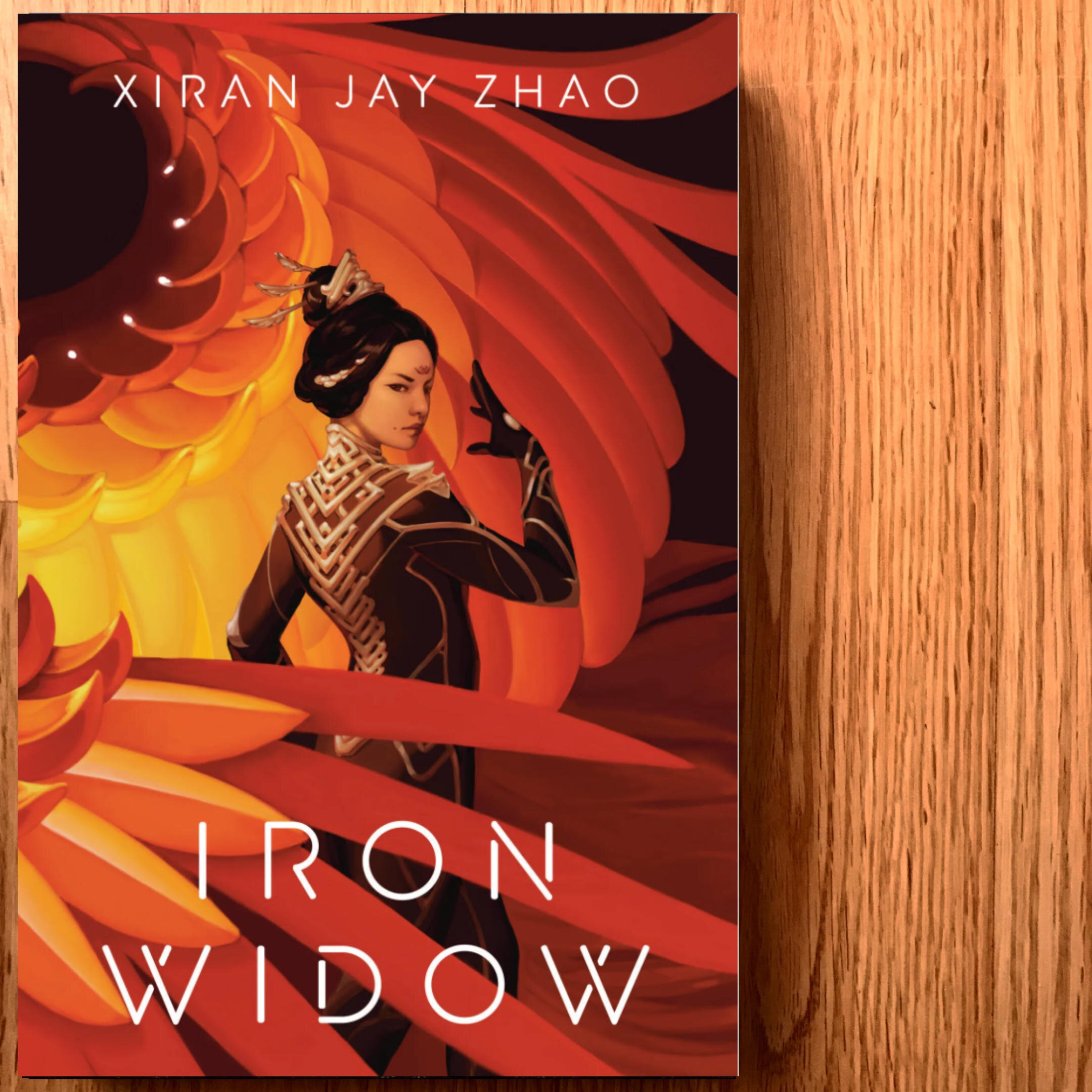By Megan Amato
Content warnings: attempted rape, violence, misogyny, domestic abuse, femicide, torture, murder, alcohol addiction
"Iron Widow is both a celebration of my favorite aspects of my culture and a critique of its worst beliefs, but as you read this book, I urge you to remember that misogyny is not exclusive to Chinese culture—it is everywhere in the world." – Author's note
Xiran Jay Zhao's YA sci-fi novel Iron Widow is an ode to angry girls everywhere. Based loosely on figures in Chinese history, including China's only female emperor, it's a breathtaking novel that doesn't shy away from topics often listed as taboo in teen fiction. In almost every way, this book defies norms that we often see in YA—and even adult—fiction.
Huaxia is like any patriarchal society: men rule, and woman are subjected to having to support the men’s whims and dreams at the cost of themselves. This is often literally the case as young and often poor women are sent as concubines to young male pilots who use the women as "co-pilots" to power their chrysalises—transforming robots made from the exoskeleton of the aliens invading their homeland.
After 18-year-old Zeitan's sister is killed by the most famous and beloved pilot, Zeitan plans revenge and volunteers herself as his concubine. After she kills him during flight and takes over the chrysalis, she is named an Iron Widow. To silence her, the powers that be force her to co-pilot with the notorious Li Shimin, murderer, and the strongest contemporary pilot—no girl has ever survived as his co-pilot. After failing to kill him, Zeitan begins to suspect that Li's reputation isn't what it is made out to be, and they form a reluctant partnership. Threatened by the combined power of a criminal and young woman, Huaxia sends them to be sacrificed in a battle, but they come up victorious. With the help of the rich boy she left behind, they form a trio that schemes to ensure they are too valuable to kill, and to stop the needless death of girls to power chrysalises—by whatever means—and change history in Huaxia.
Let me start out by raving about the polyamorous relationship. Yes, you read that right. Zhao doesn't make you go through the angst-filled "which one will she choose," but instead says, "why can't she have both?" and more, "why can't the men love each other too?" Of course, there are some hiccups, as these are three humans, but it has nothing to do with jealously and everything to do with respect and people repeatedly trying to kill them.
I have a particular fondness for angry female characters. And if they stay angry throughout the novel, withholding forgiveness, even better (I'm not sure what that says about me, but there you go). Zeitan is not exactly "good." She's a morally grey character—but her anger is just. It stems from societal gender and class barriers that have shaped a life in which her parents disvalue her, abuse her, and pressure her into signing up as a concubine so they will profit from her death. Her placement in the world has molded her into a character who will do anything for freedom—but it also makes her angry, brave, and desperate enough to set out to ensure that no girl will face what she does again.
This book has quickly punched its way to one of my top three reads of the year. It's a brilliantly fleshed out story with exhilarating worldbuilding and characters who grab you by the throat and don't let go. The ending was—I won't ruin it for you, so let's just say I'm already holding my breath for book two.
Thank you, Penguin Random House Canada, for the complimentary copy in exchange for an honest review.

